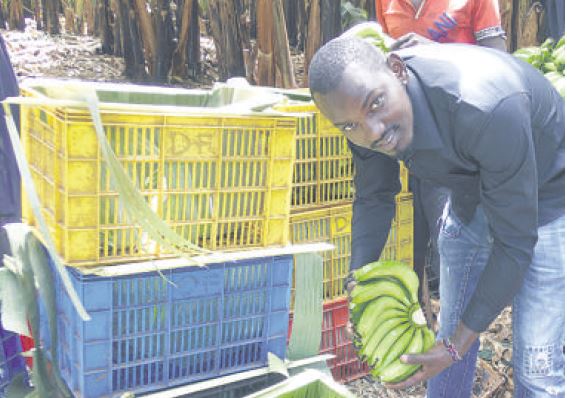×
The Standard e-Paper
Kenya’s Boldest Voice

It’s all about bananas in Meru’s Mitunguu Rwompo village. But one farm stands out. Verdant Farm, a 30-acre farm owned by one young man Oscar Gitonga.
Gitonga, though a graduate in Telecommunication and Information Engineering from Liaoning University of Technology in China, says he found passion in farming.







